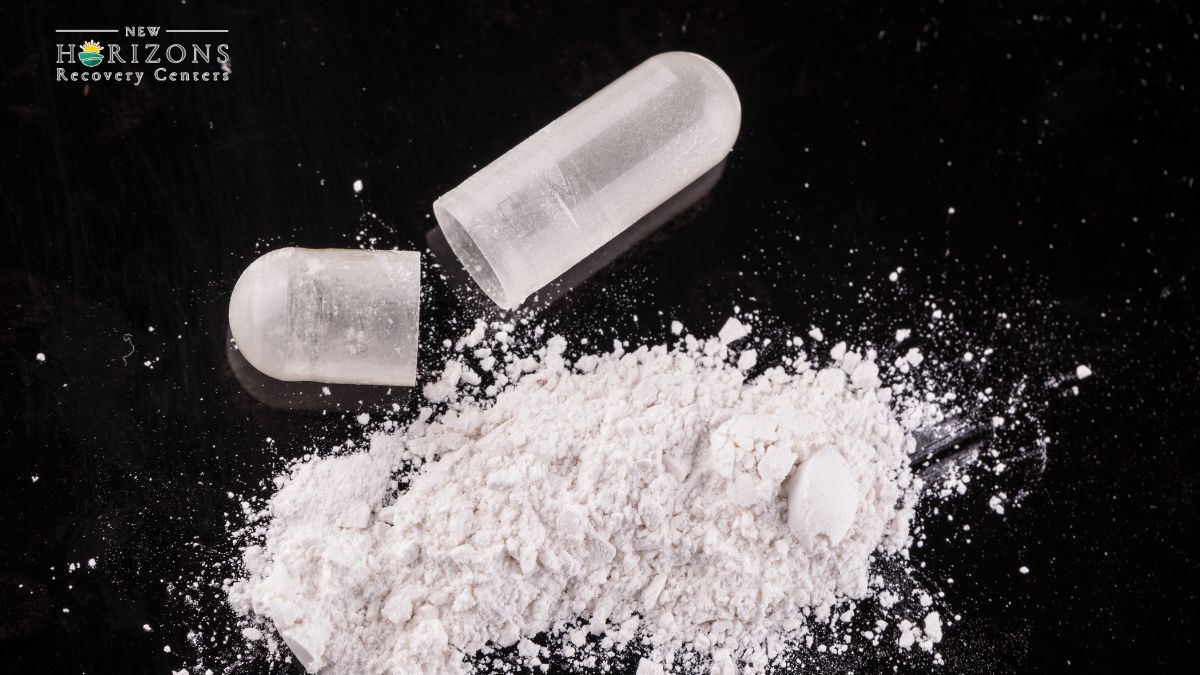Understanding Addiction Recovery

When considering the journey of addiction recovery, it is essential to grasp both the overarching view of the process and the critical significance of actively pursuing treatment.
Overview of Addiction Recovery
Recovery from addiction is a complex and multifaceted process that involves not only addressing the physical aspects of substance misuse but also the underlying psychological and social factors contributing to addictive behaviors. It is a journey of self-discovery, healing, and transformation that requires commitment, perseverance, and support from various avenues.
Studies have revealed a spectrum of barriers that individuals face when seeking treatment for substance use disorders (SUD). These obstacles include personal beliefs, fears, social stigma, lack of support, legal restrictions, and service-related issues. These barriers can impede individuals from accessing and engaging effectively in treatment, underscoring the need for targeted interventions and support systems.
Importance of Seeking Treatment
The decision to seek treatment for addiction is a pivotal step towards reclaiming one's life and breaking free from the cycle of substance dependence. Acknowledging the need for help and actively engaging in treatment can pave the way for lasting recovery and improved quality of life.
For many individuals struggling with addiction, seeking treatment may seem daunting due to various factors such as fear of judgment, concerns about privacy, or lack of awareness about available resources. However, it is crucial to recognize that overcoming these barriers is the first crucial step towards healing and growth.
Family support has been identified as a significant facilitator in navigating the path to recovery from substance use disorders. The role of family members in providing encouragement, understanding, and a supportive environment can greatly enhance the treatment journey, fostering a sense of connection and motivation to overcome challenges [2].
Additionally, personal motivation plays a pivotal role in driving individuals towards seeking and maintaining addiction treatment. The intrinsic desire to change, coupled with external support systems such as friends, treatment providers, and community resources, can create a strong foundation for long-term recovery success.
By understanding the nuances of addiction recovery and recognizing the importance of seeking treatment, individuals can take the first essential steps towards healing, growth, and a life free from the grips of substance abuse. If you or someone you know is struggling with addiction, remember that help and support are available, and reaching out is the first courageous step towards a brighter and healthier future.
Individual Barriers to Treatment

When individuals are facing substance use disorder (SUD), various barriers can hinder their path to seeking addiction treatment. These barriers can stem from personal beliefs and fears, as well as a lack of motivation.
Personal Beliefs and Fears
Many individuals encounter barriers to seeking SUD treatment due to erroneous beliefs and unfounded fears regarding the treatment process. These misconceptions can include doubts about the effectiveness of treatment, concerns about judgment from others, or fears of facing their addiction head-on. Addressing and dispelling these misconceptions is crucial in encouraging individuals to take the first step towards recovery [3].
Lack of Motivation
Lack of motivation is another significant barrier that individuals may face when considering addiction treatment. This lack of drive or willingness to change can impede their ability to initiate the treatment process. Motivation plays a pivotal role in overcoming addiction, and without it, individuals may struggle to commit to the recovery journey. Finding ways to boost motivation, whether through personal reflection, encouragement from loved ones, or professional support, is essential in breaking through this barrier [3].
Understanding and addressing these individual barriers to seeking addiction treatment is crucial in providing support and guidance to those struggling with SUD. By acknowledging and working through personal beliefs, fears, and motivational hurdles, individuals can take the necessary steps towards a path of recovery. For additional resources and support, consider exploring telehealth in addiction treatment services, harm reduction strategies in addiction recovery, and addiction recovery support for LGBTQ+.
Social Barriers to Treatment

Despite the importance of seeking addiction treatment, individuals often face various social barriers that can hinder their journey towards recovery. Two significant social barriers are stigma and social support, as well as family dynamics.
Stigma and Social Support
Stigma surrounding individuals with substance use disorders has pervasive effects on various aspects of treatment and recovery. Negative attitudes and misconceptions contribute to the stigmatization of individuals seeking addiction treatment, which can impact their willingness to engage in treatment programs [4]. Language used to describe individuals with substance use disorders can perpetuate this stigma, creating barriers in crucial areas such as healthcare access, employment opportunities, and insurance policies.
Moreover, health professionals may hold negative attitudes towards patients with substance use disorders, viewing them as manipulative or lacking motivation. Insufficient training and education among healthcare providers can lead to suboptimal care for individuals with substance use disorders, further exacerbating the stigma and hindering their treatment journey.
Additionally, the stigma surrounding individuals in recovery who utilize medication-assisted treatment (MAT) can impact their treatment outcomes. Misconceptions about MAT, such as viewing it as merely "trading one drug for another," can discourage individuals from seeking necessary treatment [4].
Family Dynamics
Family dynamics play a crucial role in an individual's journey towards addiction recovery. While family support can be a facilitator in seeking treatment, it can also act as a barrier in some cases. Supportive families can provide a sense of stability and encouragement for individuals struggling with addiction, boosting their motivation to seek help. However, familial stigma or lack of understanding about addiction can create additional challenges for those trying to access treatment services.
In some instances, family members may inadvertently enable addictive behaviors or harbor negative attitudes towards seeking professional help for addiction. These dynamics can perpetuate feelings of shame, guilt, or isolation, making it harder for individuals to take the first step towards recovery. It is essential to address family dynamics as part of the treatment process to ensure a supportive environment conducive to sustained recovery.
By acknowledging and addressing social barriers such as stigma, promoting social support systems, and navigating complex family dynamics, individuals seeking addiction treatment can begin to overcome these challenges and work towards a healthier, substance-free life. It is crucial to provide a supportive and understanding environment for individuals struggling with addiction, fostering a sense of community and empowerment in their recovery journey.
Structural Barriers to Treatment

In the realm of seeking addiction treatment, structural barriers play a significant role in hindering individuals from accessing the necessary support and services. These barriers are often rooted in systemic issues that impact the availability and quality of treatment options. Let's delve into two primary structural barriers: legal constraints and treatment provider services.
Legal Constraints
Legal constraints pose a substantial obstacle to individuals seeking addiction treatment. These constraints can arise from laws and regulations that limit the accessibility of certain treatment modalities or restrict the scope of services available to individuals with substance use disorders. Additionally, legal barriers may impede the implementation of harm reduction strategies and innovative treatment approaches.
Addressing legal constraints requires a comprehensive review of current policies and regulations to identify areas that may be inhibiting access to care. By advocating for changes in legislation and promoting evidence-based practices, stakeholders can help create a more supportive legal framework that fosters addiction recovery. To learn more about how policy constraints influence addiction treatment, visit our article on addressing the opioid epidemic.
Treatment Provider Services
The quality and accessibility of treatment provider services play a vital role in shaping the treatment experience for individuals with substance use disorders. Structural barriers within treatment provider services can include limitations in telehealth offerings, insufficient resources for medication-assisted treatment, and gaps in harm reduction strategies.
Improving treatment provider services requires investments in training, infrastructure, and technology to enhance the delivery of care. Utilizing telehealth in addiction treatment services can bridge gaps in geographical access and provide tailored support to individuals in need. Furthermore, expanding the landscape of medication-assisted treatment and integrating harm reduction strategies can significantly enhance the effectiveness of addiction treatment programs.
By addressing legal constraints and optimizing treatment provider services, stakeholders can work towards creating a more inclusive and supportive environment for individuals seeking addiction treatment. Collaborative efforts to overcome these structural barriers are essential in enhancing access to care and improving outcomes for individuals on the path to recovery.
Facilitators for Seeking Treatment

In the journey of addiction recovery, certain facilitators play a crucial role in encouraging individuals to seek treatment and embark on the path to healing. Two significant facilitators that can make a difference in overcoming barriers to seeking addiction treatment are family support and personal motivation.
Family Support
Family support stands out as a powerful facilitator in the process of Substance Use Disorder (SUD) treatment. Research highlighted in a study (PubMed) underlines the vital role the family network plays in supporting individuals seeking treatment for addiction. The impact of family support was found to be distinct compared to support from friends or the therapeutic team.
Having a supportive and understanding family environment can provide the necessary emotional backing for individuals struggling with addiction. From encouraging positive behavioral changes to offering practical assistance, the unwavering support of family members can significantly increase the likelihood of successful treatment outcomes.
For family members seeking to support a loved one in their journey to recovery, there are various addiction recovery resources available that offer guidance and strategies to navigate the challenges of addiction as a family unit.
Personal Motivation
At an individual level, personal motivation emerges as a key facilitator in the realm of SUD treatment. Multiple studies have emphasized the critical role of personal motivation in engaging with and adhering to addiction treatment plans.
Personal motivation acts as the internal driving force that propels individuals to seek help, make positive changes, and commit to the recovery process. Whether stemming from a desire to break free from addiction's grip, improve overall well-being, or rebuild relationships, personal motivation lays the foundation for sustained recovery.
By harnessing personal motivation, individuals can take ownership of their journey towards sobriety and actively participate in treatment interventions tailored to their needs. Cultivating and nurturing this intrinsic motivation is instrumental in achieving long-term sobriety and embracing a life free from the chains of addiction.
Incorporating strategies to boost personal motivation, such as setting achievable goals, celebrating milestones, and surrounding oneself with a supportive network, can empower individuals to stay resilient and focused on the path to recovery. When paired with external support systems like addiction recovery support for the LGBTQ+ community, personal motivation becomes a formidable ally in the fight against addiction.
Enhancing Access to Treatment

Access to addiction treatment is crucial for individuals seeking recovery, but various barriers can hinder their path to getting help. Addressing these barriers through policy changes and transportation solutions can significantly improve the accessibility of treatment options for those in need.
Addressing Policy Constraints
According to a study by the NCBI, structural barriers, such as policy constraints, were identified as significant obstacles to substance use disorder (SUD) treatment. To enhance the conditions for SUD treatment, existing rules, related policies, and healthcare systems require modification. By implementing diverse treatment programs, ensuring good management practices, establishing fair rules, and adopting supportive policies, the treatment landscape can be improved for individuals seeking recovery. Understanding and addressing these policy constraints are essential steps in removing barriers to addiction treatment.
Overcoming Transportation Barriers
Transportation barriers have been noted as a significant challenge for individuals accessing addiction treatment services, particularly post-Affordable Care Act (ACA) implementation. Studies highlighted in PubMed Central indicate that the post-ACA period saw increases in illicit drug use, contributing to the difficulties faced by individuals seeking substance use disorder treatment. Lack of knowledge about available treatment options and difficulties in accessing treatment facilities have added to the transportation challenges.
Efforts to overcome transportation barriers involve developing solutions at both organizational and individual socioecological levels. Providing accessible transportation options, improving public transportation routes to treatment facilities, and increasing awareness of available resources can help mitigate the impact of transportation barriers on individuals seeking addiction treatment. By addressing these challenges head-on, the journey to recovery becomes more feasible for those in need.
In conclusion, by actively engaging with policy changes that enhance treatment conditions and implementing strategies to overcome transportation barriers, the accessibility of addiction treatment services can be significantly improved. Collaboration between policymakers, healthcare providers, and community organizations is essential in creating a supportive environment that facilitates access to necessary treatments for individuals on the path to recovery.
References
[2]: /addiction-recovery-resources-for-families
[3]: https://www.ncbi.nlm.nih.gov/pmc/articles
[4]: https://substanceabusepolicy.biomedcentral.com/articles

-ink.jpeg)

-ink.jpeg)



